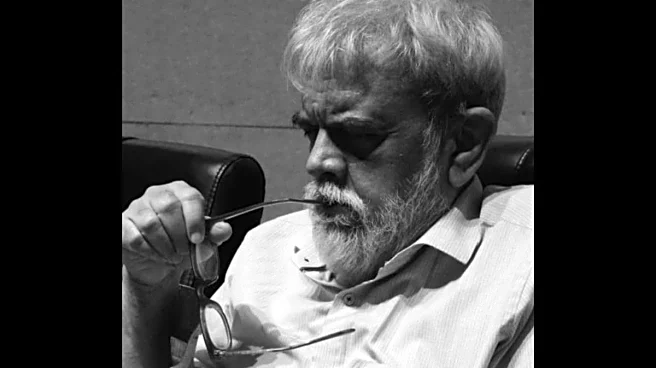Some people live like candles—they burn quietly, giving light without demanding attention. Gajanan Bhaskar Mehendale was one such rare soul. For those of us who had the privilege of spending some time
with him, his passing feels like losing not just a person, but an entire institution.
Mehendale Sir, or Gajabhau as he was known to his friends and disciples, was a scholar beyond labels. Most people know him as the historian who gave us works like Shivaji: His Life and Times in English and Shri Raja Shiv Chhatrapati in Marathi, still considered the most authoritative works on Chhatrapati Shivaji Maharaj. But he was so much more than that.
A postgraduate in Defence Studies, he had an abiding interest in military strategy. In 1971, he reported as a war correspondent from the battlefields of the India–Pakistan war, witnessing the birth of Bangladesh. His curiosity stretched far beyond Maratha history—to the World Wars, cryptography, and even modern geopolitics. Born in 1947, Mehendale sir pursued knowledge not for accolades but for truth.
Mehendale sir’s greatest strength lay in his meticulous use of primary sources. To read Shivaji in his own times, he mastered Modi script, Persian, Urdu, even Portuguese. Decades of work at the Bharat Itihas Sanshodhak Mandal in Pune gave him access to a treasure trove of sanads, farmans, and letters. He never accepted second-hand wisdom. He verified, collated, and questioned until the truth shone clear. For him, history was not storytelling, but a pursuit of truth.
I remember once asking him about the Marxist distortions that have contaminated Indian history with their signature cocktail of selective omissions, half-truths and even bald-faced lies. He smiled and said with his characteristic pragmatism that it is the real historian’s job to uncover the truth and to unmask the lies.
On his 75th birthday, a group of us had gone to his home. Mehendale sir welcomed us warmly, giving us three-and-a-half hours of his time. His house looked like a library, piled high with books and papers, and in the middle of it all, Mehendale sir sat like an ancient Rishi surrounded by manuscripts.
He spoke endlessly—about Shivaji’s genius, Aurangzeb’s fanaticism, Tipu Sultan’s cruelty, the deliberate whitewashing by Marxist historians, the destruction of temples, the naval strategies of the Marathas. He moved seamlessly from one subject to another, lacing his talk with references, anecdotes, even mischief. He had an extremely acerbic wit and he could deliver the most sarcastic remarks with a straight face.
Mehendale sir lived alone, wholly devoted to historical research, surrounded not by luxuries but by manuscripts, books and notes. Every moment spent away from historical research, he considered wasted. He was a man in a hurry. He knew he didn’t have much time, and he wanted to accomplish a lot in the time he had.
Recognition came his way, but he never sought it. His only allegiance was to the truth. Even when a new book of his was coming out, he refused podcasts, avoided the lure of television debates, and chose the quiet dignity of his desk over the noise of the news studios. He was confident that his books would do the talking for him.
Gajanan Bhaskar Mehendale leaves behind a threefold legacy. First, his scholarship—five decades of painstaking research that produced works unmatched in academic rigour. Second, his unwavering integrity—he neither flattered rulers of the past nor vilified them for ideology’s sake. He sought balance, context, and evidence. And third, his unrelenting efforts to mentor younger historians interested in studying Maratha history. He always encouraged students, welcomed visitors, and was incredibly patient with people who sought his guidance.
As I think of that silver murti of Chhatrapati Shivaji Maharaj we offered him on his birthday, I realise it was the perfect symbol. Who else but Mehendale sir, who carried Shivaji’s legacy into our times with unmatched diligence, deserved such a gift?
In an age when history is bent to serve politics or profit, Gajanan Bhaskar Mehendale had an unwavering commitment to truth, and nothing but the truth. He wrote with seriousness, lectured with care, and remained ever-aware that history is not his personal possession but a shared national inheritance.
Perhaps the best way to honour Gajanan Bhaskar Mehendale’s memory is not with garlands and glowing words, but by emulating his uncompromising devotion to truth. To read deeply, to question bravely, to preserve what is authentic and call out what is distorted is the best tribute we can offer to the last of India’s great historians.
Shefali Vaidya is an award-winning, multilingual author, columnist, and public intellectual known for her work on Indian history, textiles, temple architecture, and living heritage. An Ananta Leadership Fellow and BORI-Infosys Fellow, she curates three literature festivals and balances roles as writer, curator, and political commentator. Views expressed in the above piece are personal and solely those of the author. They do not necessarily reflect News18’s views.




/images/ppid_a911dc6a-image-177104554006886045.webp)







/images/ppid_59c68470-image-177104502841632289.webp)

/images/ppid_a911dc6a-image-17710448296527978.webp)
/images/ppid_a911dc6a-image-177104482828655023.webp)
/images/ppid_a911dc6a-image-177104464363699291.webp)